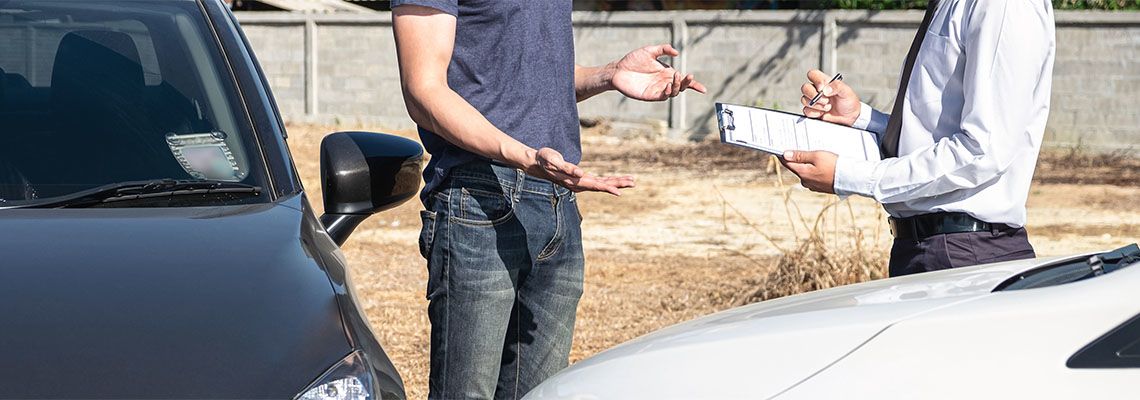
What Not to Say to an Insurance Adjuster
Insurance adjusters do not have people’s best interests at heart. They work for insurance companies looking to maximize their profits. With an average car accident settlement of nearly $24,000 in the United States between 2015 and 2020, insurers are always looking to minimize payouts.
When you receive a call from an insurance adjuster after a personal injury, the experience can be full of many unknowns. At Detroit Legal Group PLLC, we’re here to help you navigate this process. As personal injury attorneys and car accident lawyers, we feel honored to listen to our clients’ stories and help them strategize a path forward. If you live in Detroit or anywhere else in Michigan, including Dearborn, Southfield, and Warren, set up a consultation with our team.
The Insurance Adjuster’s Role
An insurance adjuster is a professional who works on behalf of an insurance company to investigate, evaluate, and settle insurance claims. Their primary role is to assess the damage or loss that has occurred and determine the appropriate amount of compensation that the insurance company should pay to the policyholder.
Insurance adjusters typically have extensive knowledge of insurance policies and claims procedures. They use this knowledge to review claims and determine the cause and extent of damage or loss. They may interview witnesses, inspect damaged property, and gather other information to determine the claim's validity and the amount of compensation that should be paid.
Once an insurance adjuster has completed their investigation, they will typically negotiate with the policyholder or their representatives to settle.
Requests for a Statement
Our clients often ask, “Do I have to talk to the insurance adjuster?” As part of a car accident investigation, insurance adjusters request policyholders and claimants for statements regarding the accident. However, there are three key reasons why accident victims should refuse to talk to an insurance adjuster:
Speaking with an attorney before speaking to the insurance adjuster is always a good idea. An attorney can advise accident victims on their legal rights and help them navigate the claims process.
Accident victims still in the process of receiving medical treatment or are unsure about the extent of damages should avoid speaking with the insurance adjuster. Once accident victims settle a claim, seeking additional compensation is difficult. So, it is important to ensure that accident victims fully understand the damages and personal injuries before agreeing to any kind of settlement.
Insurance adjusters are trained to ask questions that may minimize the amount of compensation claimants receive. When accident victims are unsure how to answer a question or are concerned about saying something that could hurt their case, it’s in their best interest to refuse to speak with the adjuster until they have spoken with an attorney. Insurance companies often try to catch claimants in contradictory statements or inconsistencies.
What to Say if You Choose to Give a Statement
When accident victims choose to give a statement to an insurance adjuster, it is crucial to keep the following points in mind:
Stick to the basic facts of the incident and avoid speculation or guessing. Don't exaggerate or understate the extent of the damages or injuries.
Always be truthful and honest when giving a statement to an insurance adjuster. Do not lie or provide false information, as this could be considered insurance fraud and could result in serious legal consequences.
Keep the statement brief and to the point. Do not ramble or go off on tangents, as this can confuse the adjuster and may result in misunderstandings.
Speak clearly and directly to the adjuster. If a question is unclear, ask for clarification. When accident victims are unsure what to answer, it is always best to seek clarification or refuse to answer.
Victims must not admit fault or liability for the incident, as this could be used against them later in the claims process. Victims should stick to the facts of what happened and avoid offering opinions or judgments about who was at fault.
Keep a record of the conversation, including the adjuster's name and contact information, the date and time of the conversation, and a summary of what was discussed. This record can be helpful if there are any discrepancies or misunderstandings later on. Also, accident victims can ask the adjuster not to record the interview to avoid using the material against them.
Above all, accident victims must not sign anything until a car accident or personal injury attorney reviews it.
What Information Will Insurance Adjuster Ask Me to Provide?
Another common question our clients ask is, “What information will an insurance adjuster ask me to provide?” The following information is what insurance adjusters typically ask for:
personal information such as name, date of birth, and contact information;
details about the incident include time, date, and weather conditions;
description of material damages to vehicles and personal injuries;
medical records such as bills or reports;
the police report from the accident scene;
insurance policy information.
Please remember to be accurate and truthful—and certainly avoid volunteering any additional information.
Seek Help from a Skilled Attorney
The personal injury process can be frustrating and even overwhelming. At Detroit Legal Group, our team is ready to uphold the rights of every single client. We’re not afraid to take on insurance companies to give our clients a chance at a brighter future. Set up a simple consultation with us today.
